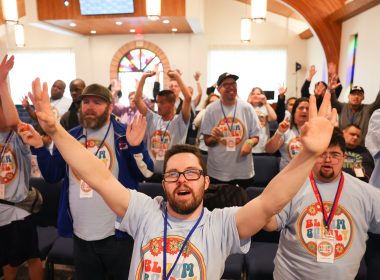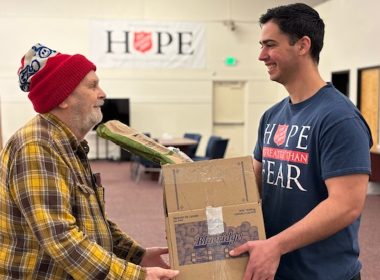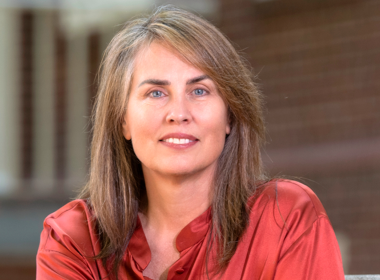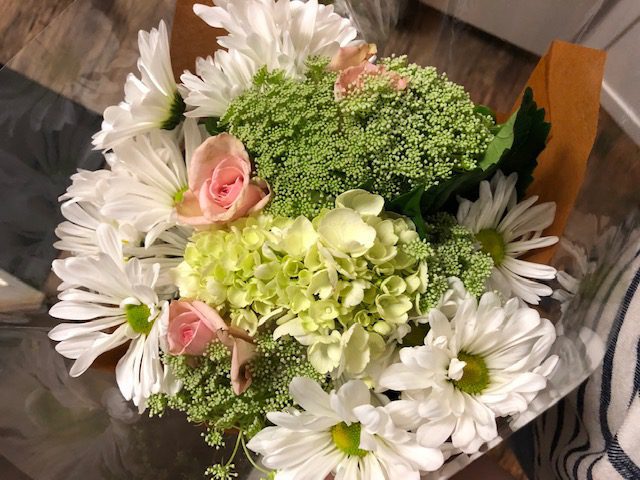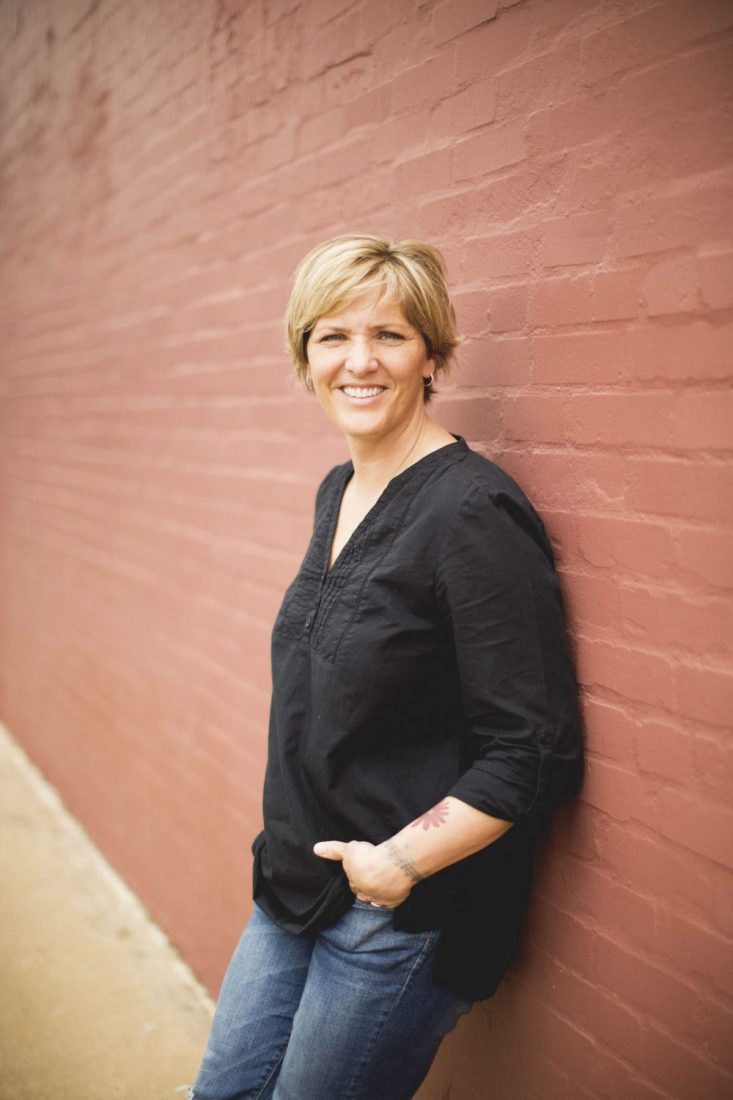By Alan Phillips, Major –
It was a crisp night, Dec. 23, 2012, when I found myself in the parking lot of a treatment center in South Georgia. My wife dropped me off at the place I would spend the next 37 days and nights; I missed Christmas with my family for the first time in 39 years.
I surrendered to God that night and dropped that heavy weight of addiction I had carried off and on for 20 years. I was and am a Salvation Army officer.
I walked the dark road of addiction the same way a young man in an adult rehabilitation center (ARC) program does, and the same way someone on the street or under a bridge does.
As a child, I did not feel nurtured, but rather experienced yelling, screaming, and judging. I broke my collarbone at 13, and still remember what I felt when I took that first pain pill. I sensed I could finally open up. I believe my addiction began then.
That feeling returned when I had my first drink of alcohol on a high school band trip. I never fit in, but that feeling left the moment I got drunk and all my friends thought it was cool.
My mom eventually kicked me out of the house, so I moved in with my friend’s family. They did not seem to care if I used drugs—maybe because they did so themselves, but I wanted it to stop.
During an altar call at a territorial youth institute, God called me to be a Salvation Army officer. Yet, I failed to cut ties with my friends and it did not take long for me to go back to using again. One day I woke with a massive hangover, and thought that the world would not care if another teenage drug addict died. I wondered how I could end my life. God soon after intervened through an officer, who asked if I would be a corps assistant. I said yes, and left for Aiken, S.C., clean and sober. I would enter the School For Officer’s Training later that year in 1981.
While a corps officer at the Houston Temple Corps in Houston, Texas, in 1988, I was bit by a brown recluse spider while working in our garden. The pain was unbelievable.
I was prescribed pain medication at the emergency room to help dull the pain, which finally subsided. I felt better, but my addiction to pain medication picked up right where it left off over 30 years earlier.
Just a month later we discovered that our babysitter’s son had been molesting our two oldest children. I remember the feelings of helplessness, and anger just like it was yesterday. I remember hurting for my children, and feeling guilty that I was not there. Instead of dealing with the feelings in a productive way, I began an on-again-off-again struggle—every relapse sending me spiraling into a deep chasm of guilt so profound that I found it difficult getting in the pulpit to preach.
I distinctly remember being called to the hospital as the volunteer chaplain after an 8-day-old baby girl was killed. Her mother, a meth addict, mistook the child for a basket of dirty clothes, put her in the washing machine and ran it for the full cycle. The girl lay lifeless and bruised, and I prayed with the mother, who knew she would spend the rest of her life in prison. It should have brought me to my senses, but I continued down that road for another year.
Finally, one day my divisional commander confronted me about my drug use. He asked me specific questions, and I confessed. I was suspended, and instructed to go to treatment for a minimum of 30 days. I told my wife, “This time is going to be different,” and I knew she had all the reason in the world not to believe me.
Those 12 days of detox were one of the most difficult experiences of my life as my body rebelled against me with such force and pain. I had the gall to tell the same God I surrendered to just 12 days earlier, “You know, God, I thank you for answering my prayer, but I would have done it differently.”
I have never been more grateful than when my wife came to pick me up. I had not seen or heard from her since entering treatment a month earlier, and we both cried as we hugged.
The Army sent us to Atlanta as we would go on sick leave, a difficult period for us. For the past 20 years we had known and related to each other as “the addict” and “the one trying to fix the addict.” It was like we were total strangers, but I am forever grateful to the soldiers and officers of the Atlanta Temple Corps who ministered to us in ways we will forever remember.
Our divisional commander kept the promise he made to us that if we worked with our counselors and attended support meetings he would do all in his power to give us an appointment. We were appointed as corps officers in Greenville, Miss.
Let me state plainly and soberly: addiction is cunning, powerful and baffling. Above all, addiction is patient. It waits to jump on you. I hear in meetings sometimes that it is waiting out in the parking lot doing pushups.
We are now in our second appointment in sobriety, and things have improved significantly. I am attending meetings, ministering to my brothers and sisters in recovery, and God is good. Tomorrow morning I will wake up, pray that God will help me stay clean and sober another day, and tomorrow night I will thank him for helping me stay clean and sober another day. It’s that simple.
My name is Alan. I am a grateful believer who has struggled with drugs and alcohol, but am now in recovery. I reached three years clean and sober on Dec. 23, 2015.


